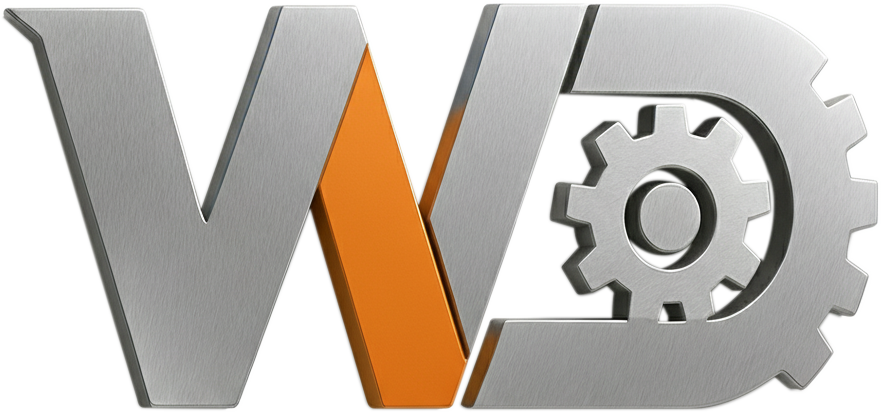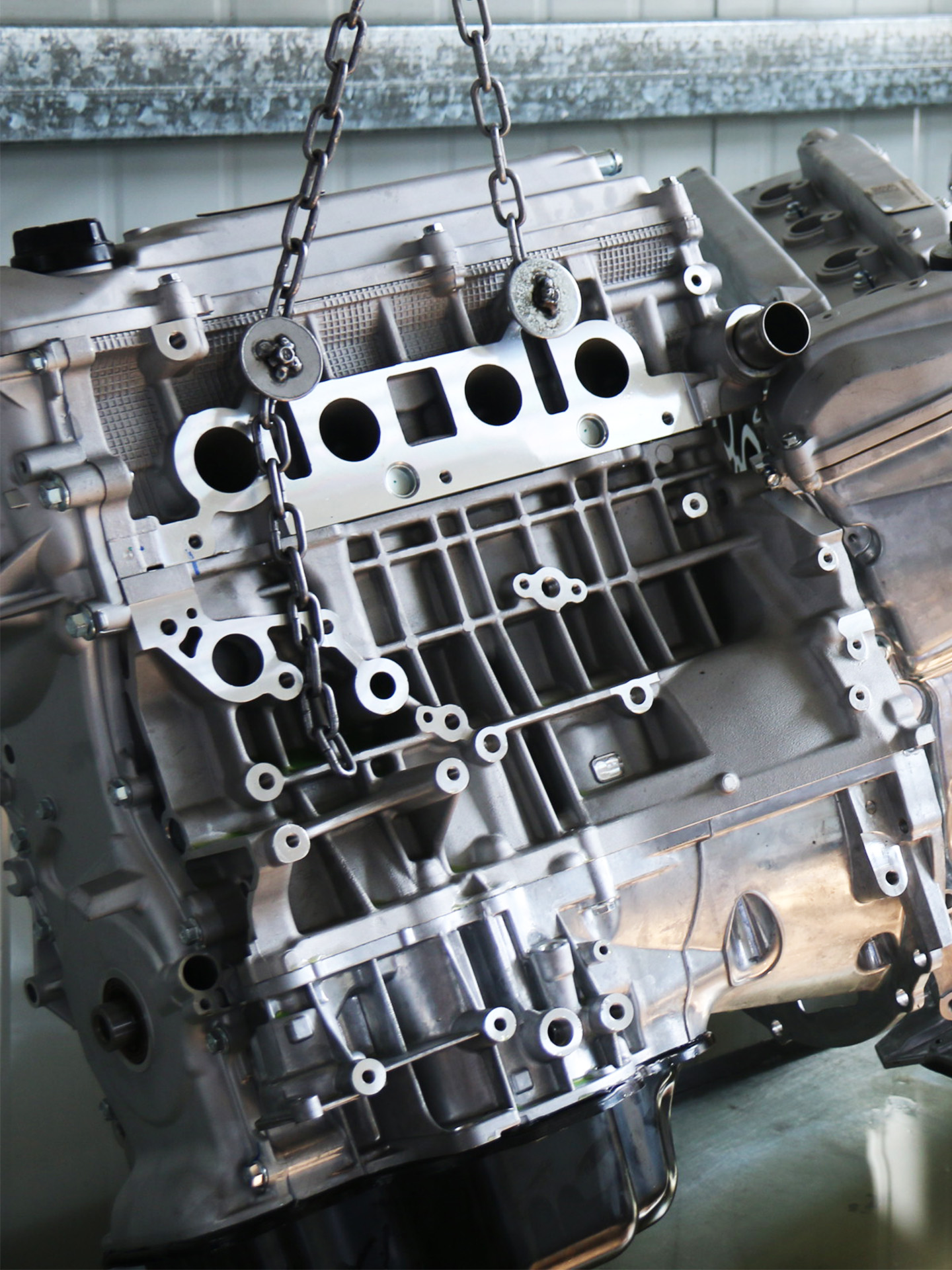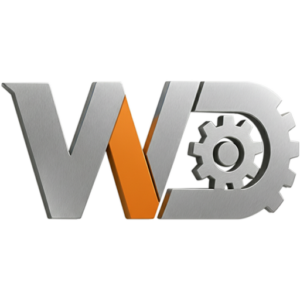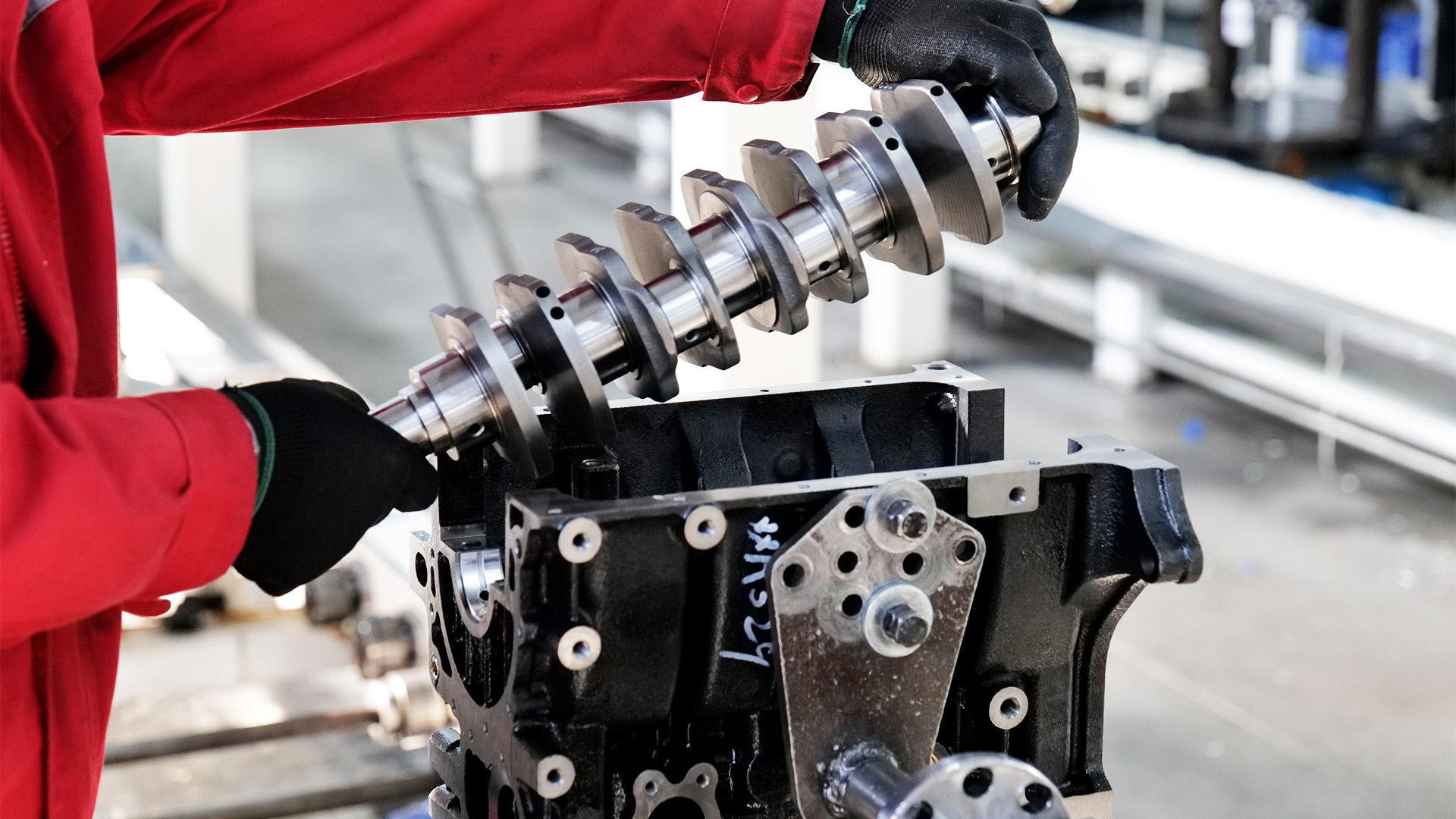If you’ve spent any time around Land Cruisers, you already know the engine isn’t just “an engine.” It’s the heart of the LC’s go-anywhere reputation, the reason fleets keep them for decades, and the difference between a nice weekend toy and a world-proof workhorse.
This guide walks through every major Land Cruiser engine era—petrol and diesel—how they changed by generation and region, which ones are the heroes, and what to look for when you’re choosing or maintaining one.

Why the Engine Choice Matters on a Land Cruiser
- Use case fit: Desert, mining, NGO logistics, or family overlanding—each scenario leans toward different engines (long-range diesel torque vs. smooth petrol power).
- Serviceability & parts: Some engines have global parts support and bush-mechanic-friendly design; others need modern diagnostics and pricier components.
- Total ownership cost: Fuel, timing belt/chain intervals, injector/turbo upkeep, and emissions hardware all move the lifetime cost needle.
- Resale value & longevity: Certain LC engines (think 1HZ diesel or 2UZ-FE petrol) have near-mythic longevity in the right markets.

Fast Timeline: Generations & Typical Engines
- 40/60 Series (1960s–80s): Carbureted petrol inline-6s (F/2F/3F) and early diesels (B/H families) established the template.
- 70 Series (1984–today): A long service life with multiple engines: 1HZ (4.2 I6 diesel), 1HD-FTE (4.2 turbo-diesel), 1VD-FTV (4.5 V8 turbo-diesel), and, in recent updates, the 2.8-liter 1GD-FTV turbo-diesel in some markets.
- 80 Series (1990s): 1HD-T/1HD-FT turbo-diesels arrive; 1FZ-FE petrol inline-6 remains a favorite for smoothness.
- 100/105 Series (late-1990s–2007): 1HD-FTE (turbo-diesel) and 2UZ-FE (4.7 V8 petrol) headline the lineup.
- 200 Series (2007–2021): 1VD-FTV (4.5 V8 turbo-diesel) and 3UR-FE (5.7 V8 petrol).
- 300 Series (2021–present): Downsized twin-turbo V6s: 3.5-liter petrol (V35A-FTS) and 3.3-liter diesel (F33A-FTV), both with a 10-speed automatic.
- 250 Series (2024–present): 2.4-liter turbo-hybrid i-FORCE MAX (326 hp / 465 lb-ft).
Tip: Model codes often encode engines (e.g., HZJ = 1HZ; HDJ = 1HD-*; VDJ = 1VD; FZJ = 1FZ). This shorthand helps identify an LC’s engine from its designation.

Petrol Engines: From Classic Inline-6 to Modern Turbo-Hybrids
1. Inline-6 Petrol Era (F/2F/3F/1FZ-FE)
Smooth, simple, and famously tough. The 1FZ-FE (4.5L DOHC I6) in 80 and early 100/70 variants is beloved for reliability and a relaxed character, at the cost of thirst.
2. V8 Petrol: 2UZ-FE and 3UR-FE
- 2UZ-FE 4.7 V8 (1998–2011): Cast-iron block, aluminium heads, tuned for low-end torque; widely used in 100 Series and some 200 Series. VVT-i later improves output and efficiency.
- 3UR-FE 5.7 V8 (2007–2021): Big-displacement smooth power; key North American spec.
3. Modern Petrol Downsizing: V35A-FTS Twin-Turbo V6
With the 300 Series, Toyota replaced the V8 petrol with a 3.5-liter twin-turbo V6 paired to a 10-speed automatic—more power and efficiency than the outgoing V8.
4. Petrol-Hybrid Era (250 Series, 2024– )
For markets like North America, the reborn Land Cruiser now runs the i-FORCE MAX hybrid (2.4-liter turbo + electric motor, 326 hp / 465 lb-ft). Smaller, lighter, but still serious off-road.

Diesel Engines: The Long-Range Legends
1. 1HZ (4.2 L I6, NA Diesel)
The poster child for durability: mechanical injection, low-stress output, global parts support. Still offered in certain 70-series contexts and humanitarian fleets.
2. 1HD-T / 1HD-FT / 1HD-FTE (4.2 L I6 Turbo-Diesels)
- 1HD-T: Turbocharged direct-injection SOHC (12-valve).
- 1HD-FT: 24-valve upgrade.
- 1HD-FTE: Electronic direct injection, intercooler; flagship diesel in many 100s.
These engines delivered the torque and longevity that made 80/100 Series legends.
3. 1VD-FTV (4.5 L V8 Turbo-Diesel)
Twin-turbo in wagons, single-turbo in 70s. Powerful and smooth but demands injector, EGR, and DPF care where fitted.

4. F33A-FTV (3.3 L V6 Twin-Turbo Diesel)
Modern efficiency: ~227 kW / 700 Nm paired with a 10-speed automatic. Replaced the V8 diesel in the 300 Series.
5. 1GD-FTV (2.8 L I4 Turbo-Diesel)
Keeps the 70 Series alive in emissions-tight markets. Also used in Hilux and Prado; strong and efficient when maintained with correct oil and DPF care.
Quick Reference: Engines by Series
| Series | Common Petrol Engines | Common Diesel Engines |
|---|---|---|
| 70 Series | 1FZ-FE, 1GR-FE | 1HZ, 1HD-FTE, 1VD-FTV, 1GD-FTV |
| 80 Series | 1FZ-FE | 1HD-T, 1HD-FT |
| 100/105 Series | 2UZ-FE | 1HD-FTE |
| 200 Series | 3UR-FE, 1UR-FE | 1VD-FTV |
| 300 Series | V35A-FTS | F33A-FTV |
| 250 Series | 2.4T Hybrid | — |
Most Reliable Land Cruiser Engines
When it comes to the Land Cruiser, the engine defines how long it lasts — and how far it can take you. Over the decades, a few powerplants have proven to be exceptionally tough and reliable. Here are the engines most trusted by Land Cruiser owners and mechanics around the world.
1HZ (4.2L Diesel)
The 1HZ is the engine that built the Land Cruiser’s reputation. Its mechanical fuel injection and lack of electronics make it incredibly dependable, even in harsh or remote environments. It’s not quick, but it’s tough — many 1HZ engines easily exceed 500,000 km with only routine maintenance. With parts available almost everywhere, it’s a favorite for fleets, overlanders, and humanitarian operations.

1HD-FTE (4.2L Turbo-Diesel)
Often called the perfect blend of power and reliability, the 1HD-FTE features 24-valve direct injection and an intercooler for smoother, more responsive performance. It’s strong, efficient, and remarkably long-lived when maintained with clean fuel and oil. Found in the 80 and 100 Series, it delivers effortless torque and comfort without compromising durability.
2UZ-FE (4.7L Petrol V8)
The 2UZ-FE is known for its cast-iron strength and quiet refinement. Built for heavy SUVs, it handles heat, load, and long mileage with ease. With proper care — regular oil changes, timing belt, and coolant — it’s common for these engines to surpass 400,000 km without major issues. It’s the go-to choice for those who prefer petrol smoothness over diesel clatter.
Honorable Mentions
- 1VD-FTV (4.5L V8 Diesel): Delivers tremendous torque and pulling power, highly reliable when injectors and EGR systems are properly maintained.
- V35A-FTS (3.5L Petrol V6) and F33A-FTV (3.3L Diesel V6): Toyota’s latest twin-turbo engines in the 300 Series, blending modern performance, fuel efficiency, and long-term durability.

Common Issues & Maintenance Watch-Outs
Even the most durable Land Cruiser engines need proper care to stay reliable. Each has its own weak spots, and knowing them early can save costly repairs down the road.
1HZ / Early 1HD-T
Simple and rugged, but prone to overheating if the cooling system isn’t maintained. Regularly flush the radiator, check hoses and the water pump, and service injectors to prevent rough running or hard starts.
1HD-FT / 1HD-FTE
Excellent engines but sensitive to oil and fuel quality. Replace filters on schedule and keep the oil clean to protect the turbo and bearings. Watch for intercooler or boost leaks that can affect performance.

1VD-FTV (4.5L V8 Diesel)
Strong and smooth, yet its common-rail system needs clean fuel. Keep injectors, EGR, and DPF systems clean, and use top-grade diesel to avoid carbon buildup and injector wear.
2UZ-FE (4.7L Petrol V8)
Very reliable overall. Just replace the timing belt on time and monitor the cooling system for leaks. Exhaust manifold cracks and minor oil seepage can appear with age but are easy to fix.
300-Series V6s (V35A-FTS / F33A-FTV)
Modern and efficient, but more maintenance-sensitive. Use the correct oil spec, change it on time, and always allow proper turbo warm-up and cool-down for long-term reliability.
1GD-FTV (2.8L Diesel)
Reliable and efficient when serviced properly. Use low-ash oil for DPF-equipped models and let regeneration cycles finish to prevent clogging. Regular fuel filter and intake cleaning are essential.

Petrol vs Diesel: Which Is Better?
Both petrol and diesel Land Cruisers have proven their worth. The best choice depends on where you drive, fuel availability, and how you use your vehicle.
Petrol Engines
Petrol engines like the 2UZ-FE and 3UR-FE offer smooth performance, quiet operation, and easy cold starts. They’re simpler to maintain in regions with variable fuel quality and ideal for city driving or long highway trips. The trade-off is higher fuel consumption and shorter range compared to diesel.
Diesel Engines
Diesels such as the 1HZ or 1HD-FTE excel in torque, range, and fuel economy, making them perfect for towing and off-road endurance. They’re built for heavy loads and long hours of operation but require cleaner fuel and more attention to EGR/DPF systems in newer models.
Quick Comparison: Petrol vs. Diesel
| Feature | Petrol | Diesel |
|---|---|---|
| Power Delivery | Smooth, higher revs | Strong low-end torque |
| Fuel Economy | Higher consumption | More efficient, longer range |
| Maintenance | Simpler, fewer emissions parts | Needs clean fuel, DPF care |
| Cold Starts | Easier in cold climates | Slower without preheating |
| Best For | City driving, comfort | Towing, off-road, long trips |
Verdict
Choose petrol for comfort, refinement, and easier upkeep.
Choose diesel for torque, range, and long-distance reliability — especially if you spend time off-road or in remote areas.

Buying Guide: Best Engine by Use Case
For distributors, fleet operators, and commercial buyers, choosing the right Land Cruiser engine depends on operating conditions, fuel access, and maintenance support. Below are the most practical combinations for different business needs.
Overlanding & Remote Operations
Recommended Engines: 1HZ or 1HD-FT/FTE
Why: These mechanical diesel engines are easy to service in the field, tolerate lower fuel quality, and perform reliably in extreme climates. Ideal for NGOs, construction fleets, and export markets with limited workshop infrastructure.
Heavy Towing / Long-Distance Transport
Recommended Engines: 2UZ-FE or 1VD-FTV
Why: Both deliver high torque and long-term durability under heavy load. The 1VD-FTV’s twin-turbo setup offers excellent pulling power for logistics or utility fleets operating on highways and mixed terrain.
Modern Everyday + Mixed Terrain Use
Recommended Engines: 300 Series V35A-FTS (Petrol) or F33A-FTV (Diesel)
Why: Designed for efficiency and comfort without compromising off-road capability. Suitable for premium fleet buyers or clients seeking modern performance with reduced fuel consumption.
North American Market (2024–Onward)
Recommended Engine: 2.4T Hybrid i-FORCE MAX
Why: Combines a strong torque curve with improved emissions and fuel efficiency. Ideal for dealerships or buyers targeting newer regulatory environments and eco-conscious customers.

The Evolving Land Cruiser Lineup
Toyota continues to modernize the Land Cruiser lineup to meet stricter emissions standards and shifting market demands, all while preserving the durability and dependability that businesses rely on.
The 70 Series remains a cornerstone of Toyota’s commercial range, continuing production with the robust 4.5L V8 diesel (1VD-FTV) in select markets and the newer 2.8L 1GD-FTV in others. These updates ensure consistent engine and parts availability for export, construction, mining, and fleet operations where reliability is non-negotiable.
At the same time, the modern 300 and 250 Series represent Toyota’s push toward greater efficiency and performance. The 300 Series introduces twin-turbo V6 petrol and diesel options paired with a 10-speed automatic for stronger output and reduced fuel consumption, while the 250 Series debuts a 2.4T hybrid powertrain, offering lower emissions and better economy for markets adapting to new environmental regulations.
Together, these models show how Toyota is evolving its legendary Land Cruiser platform to meet modern business needs — from heavy-duty work fleets to next-generation, eco-conscious buyers — without compromising the reliability that made the name iconic.

FAQ
What engines has the Land Cruiser used over the years?
From early inline-6 petrol and diesel engines to modern V8s, twin-turbo V6s, and even hybrids in the latest generation.
Which Land Cruiser engine is most reliable?
The 1HZ, 1HD-FTE, and 2UZ-FE are widely regarded as the most dependable when maintained properly.
Is petrol better than diesel in a Land Cruiser?
Petrol offers smoother driving and simpler upkeep, while diesel gives longer range and stronger torque.
When did the Land Cruiser switch to twin-turbo V6s?
In 2021 with the 300 Series.
What’s the new US-market Land Cruiser engine?
The 2024 Land Cruiser uses a 2.4-liter turbo-hybrid i-FORCE MAX with 326 hp and 465 lb-ft.

Conclusion
Toyota built the Land Cruiser to do one thing better than almost any other vehicle — keep moving when the road turns tough. Choosing the right engine — whether the near-unbreakable 1HZ, the torque-rich 1HD-FTE, the durable 2UZ-FE, or the advanced V35A-FTS, F33A-FTV, and i-FORCE MAX — depends on your operating conditions, load requirements, and maintenance support.
About Us
At Woda Auto, we specialize in supplying high-quality complete engines, cylinder heads, and crankshafts for Land Cruiser applications and other leading brands. With over 25 years of manufacturing and export experience, we help distributors, workshops, and fleet operators source reliable power solutions that perform in any market.
Looking for dependable Land Cruiser engines or components?
Contact us today to get expert advice and a custom quotation for your region.







